Find Help
More Items From Ergsy search
-
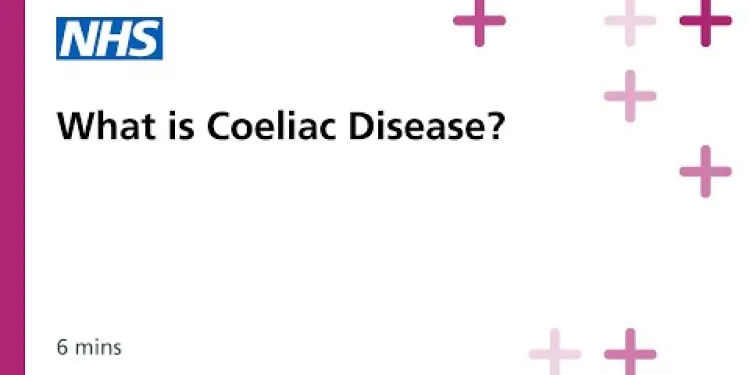
Coeliac Disease: Session 1: What is Coeliac Disease?
Relevance: 100%
-
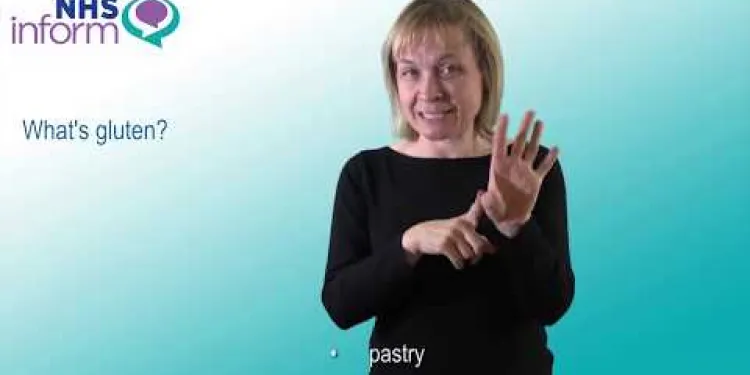
Coeliac disease
Relevance: 100%
-
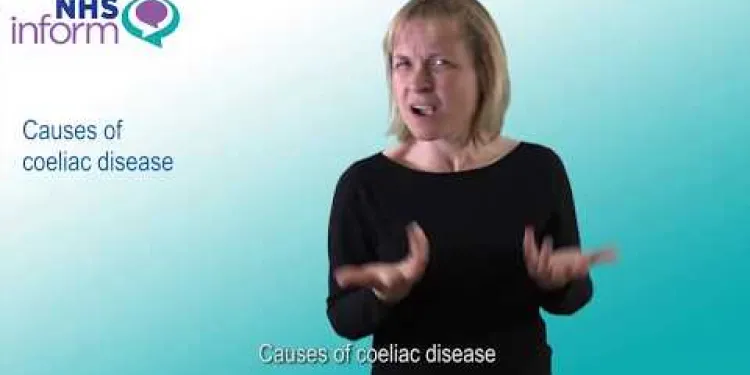
Causes of coeliac disease
Relevance: 95%
-
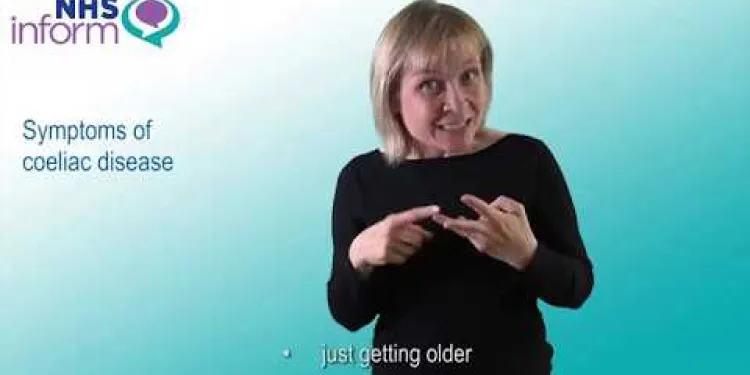
Symptoms of coeliac disease
Relevance: 93%
-

NHSGGC - What is Coeliac Disease?
Relevance: 92%
-

Living Well with Coeliac Disease
Relevance: 90%
-
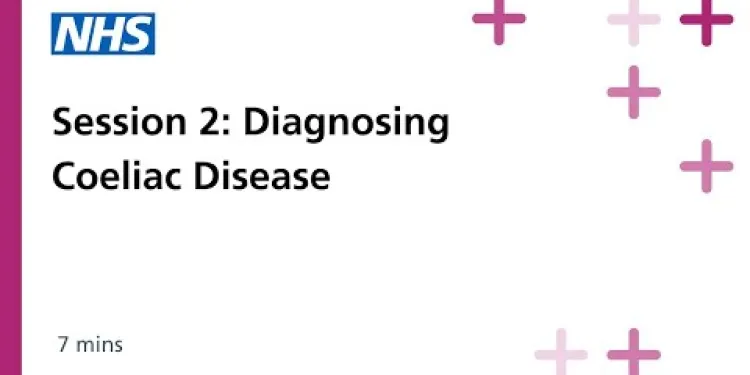
Diagnosing Coeliac Disease Updated 2021
Relevance: 88%
-

Coeliac Disease: The gluten free diet
Relevance: 85%
-
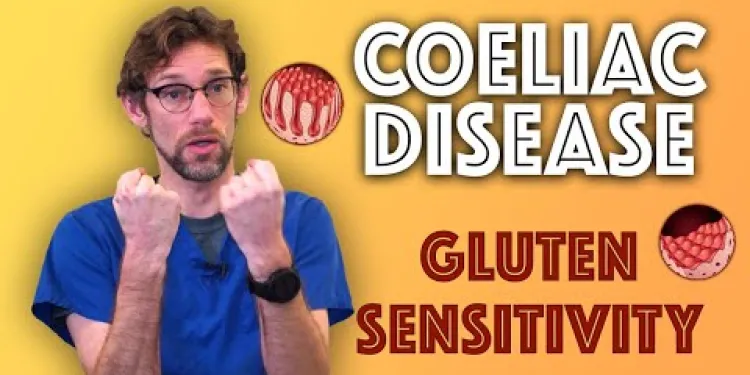
Coeliac Disease Explained - Gluten Sensitivity - A to Z of the NHS - Dr Gill
Relevance: 82%
-
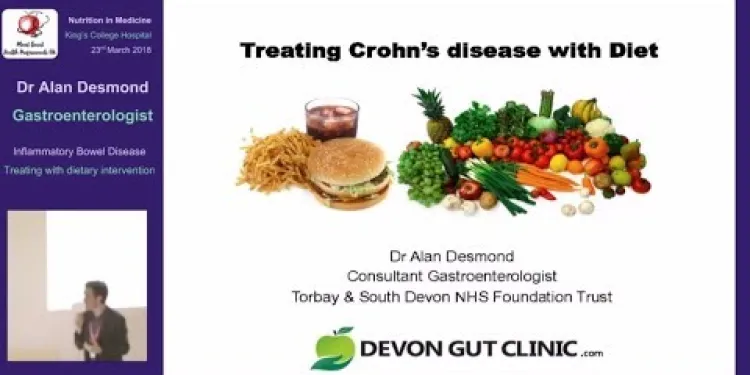
What is the best diet for Crohn’s disease?
Relevance: 30%
-

What is Lyme Disease?
Relevance: 28%
-

Is Huntington's disease fatal?
Relevance: 28%
-

Liver disease | NHS
Relevance: 28%
-

Is Crohn's disease contagious?
Relevance: 28%
-

What is Huntington's disease?
Relevance: 28%
-

Lyme disease: What is it?
Relevance: 28%
-
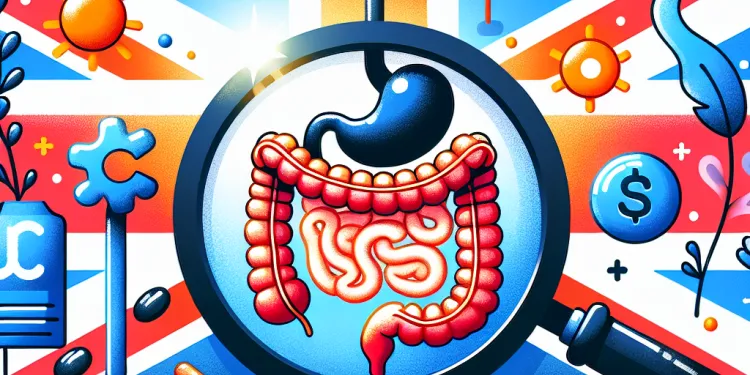
Is there a cure for Crohn's disease?
Relevance: 28%
-

What is Mitochondrial disease?
Relevance: 28%
-

What is Parkinson's disease?
Relevance: 28%
-

Is there a vaccine for Lyme disease?
Relevance: 28%
-

Is flesh-eating disease contagious?
Relevance: 28%
-

Do UK mosquitoes carry diseases?
Relevance: 27%
-

What is Alzheimer's disease?
Relevance: 27%
-
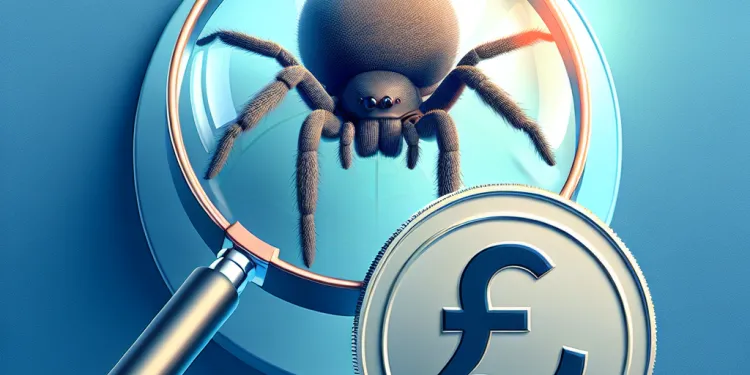
Do spiders in the UK carry diseases?
Relevance: 27%
-

What causes Crohn's disease?
Relevance: 27%
-

What causes Huntington's disease?
Relevance: 27%
-
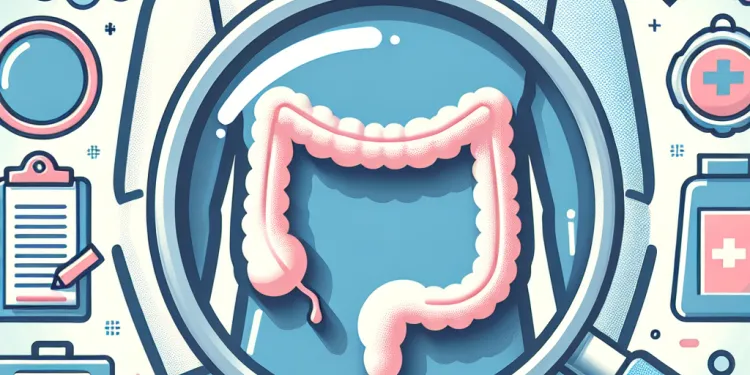
How is Crohn's disease diagnosed?
Relevance: 27%
-

Can Lyme disease be treated?
Relevance: 27%
-

How is Lyme disease transmitted?
Relevance: 27%
-

Can Huntington's disease be prevented?
Relevance: 27%
-

What is sickle cell disease?
Relevance: 27%
-

What is a flesh-eating disease?
Relevance: 26%
-

What are the symptoms of Huntington's disease?
Relevance: 26%
-

How is Huntington's disease diagnosed?
Relevance: 26%
-

Can Huntington's disease be cured?
Relevance: 26%
-

How common is Alzheimer's disease in the UK?
Relevance: 26%
-

Introduction to Sickle cell disease
Relevance: 26%
-
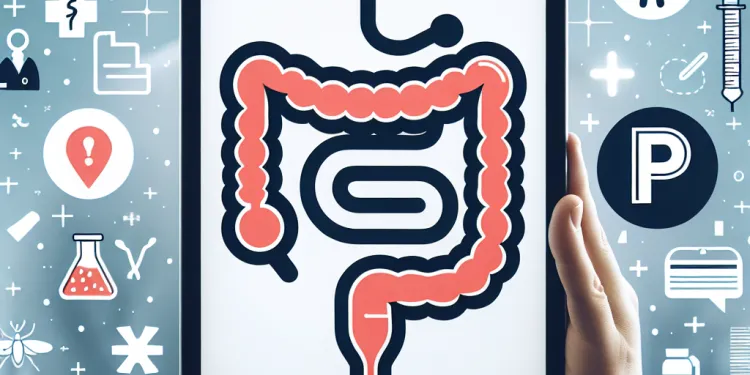
Is surgery necessary for Crohn's disease?
Relevance: 26%
-

What is a flesh eating disease?
Relevance: 26%
-
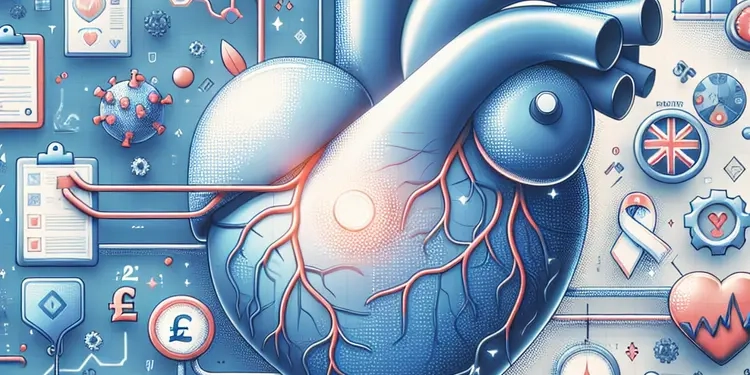
What is heart valve disease?
Relevance: 26%
Causes of Coeliac Disease
Genetic Factors
One of the primary causes of coeliac disease is genetic predisposition. Individuals with certain genetic markers, specifically the HLA-DQ2 and HLA-DQ8 genes, are more susceptible to developing the condition. These genes are involved in the immune system's response to gluten, a protein found in wheat, barley, rye, and oats. Coeliac disease tends to run in families, so if a close relative has the condition, there is a higher likelihood that you might develop it too.Triggering Factors
Although having the genetic markers increases the risk, not everyone with these genes will develop coeliac disease. Various environmental factors can trigger the onset of the condition. For some individuals, experiencing a stressful event, such as surgery, pregnancy, childbirth, infection, or severe emotional distress, can prompt the immune system to start reacting abnormally to gluten.Infant Feeding Practices
How infants are introduced to gluten in their diet might influence their risk of developing coeliac disease. Research suggests that introducing gluten gradually and possibly while breastfeeding may offer some protective effect against the disease, though the exact relationship is still not fully understood. Early introduction or large amounts of gluten may increase the risk.Gut Health
The health of the gut microbiome, the community of microorganisms living in the digestive tract, might also play a role in the development of coeliac disease. An imbalance in these microorganisms, possibly caused by infections or antibiotic use, can affect how the immune system responds to gluten. Maintaining a healthy gut microbiome might therefore be another factor in managing the risk.Autoimmune Associations
Coeliac disease is an autoimmune disorder, meaning it occurs when the body's immune system mistakenly attacks its own tissues. This condition is frequently associated with other autoimmune diseases, such as type 1 diabetes and autoimmune thyroid disease. If you have another autoimmune condition, your chances of developing coeliac disease are higher.Concluding Thoughts
While genetic factors play a crucial role in the development of coeliac disease, environmental triggers, infant feeding practices, gut health, and associations with other autoimmune diseases also significantly contribute. Understanding these causes can aid in early identification and management, particularly for those at higher risk due to family history or existing health conditions within the United Kingdom. Being informed guides better dietary choices and supports overall well-being for individuals potentially affected by coeliac disease.What Causes Coeliac Disease?
Genes
Coeliac disease can be caused by your genes. If you have certain genes, you are more likely to get coeliac disease. These genes are called HLA-DQ2 and HLA-DQ8. They affect how your body reacts to gluten. Gluten is in foods like bread, pasta, and cereal. Coeliac disease can run in families. If someone in your family has it, like your mom or dad, you might get it too.Things That Can Trigger Coeliac Disease
Having the coeliac genes doesn’t always mean you will get the disease. Some things in life can make it start, like being very stressed, having surgery, or other big changes in your life. This can make your body start reacting to gluten in a bad way.How Babies Eat
How babies start eating gluten may change their chance of getting coeliac disease. It might help to give babies gluten slowly and when they are still breastfeeding. If babies eat lots of gluten early on, they might have a higher chance of getting the disease.Stomach and Gut Health
Your gut, or stomach, has tiny living things that help keep it healthy. Sometimes these can get out of balance, maybe if you take lots of medicine or get sick often. This can change how your body deals with gluten. Keeping a healthy tummy might help stop coeliac disease.Autoimmune Links
Coeliac disease is when your body attacks itself by mistake. This is called an autoimmune disease. It is often seen with other autoimmune diseases like type 1 diabetes. If you have another autoimmune disease, you might also get coeliac disease.Final Thoughts
Coeliac disease is affected by your genes, things that trigger it, how babies eat, and gut health. It is also linked to other autoimmune diseases. Knowing what causes it helps us find it early and manage it better, especially for people with family history. Understanding this helps you make good food choices and stay healthy if you are at risk of coeliac disease. Everyone should learn about coeliac disease to help stay well.Frequently Asked Questions
What is coeliac disease?
Coeliac disease is an autoimmune condition where the ingestion of gluten leads to damage in the small intestine.
What causes coeliac disease?
The exact cause of coeliac disease is unknown, but it involves a combination of genetic predisposition and environmental factors.
How is coeliac disease diagnosed?
Coeliac disease is diagnosed through blood tests for specific antibodies and a follow-up small intestine biopsy to confirm the diagnosis.
Is coeliac disease hereditary?
Yes, coeliac disease can run in families. If a close relative has the condition, your chances of having it increase.
Can coeliac disease develop at any age?
Yes, coeliac disease can develop at any age, from childhood through late adulthood.
What are the symptoms of coeliac disease?
Symptoms include diarrhoea, abdominal pain, bloating, fatigue, and nutrient deficiencies, although some people may be asymptomatic.
What is gluten?
Gluten is a protein found in wheat, barley, and rye.
Can coeliac disease be cured?
There is no cure for coeliac disease, but it can be effectively managed with a strict gluten-free diet.
What foods must be avoided with coeliac disease?
Foods containing wheat, barley, rye, and their derivatives should be avoided. This includes most breads, pastas, and cereals.
Are oats safe for people with coeliac disease?
Pure, uncontaminated oats are generally safe, but some people with coeliac disease may still react to them.
What are common misconceptions about coeliac disease?
Common misconceptions include it being an allergy or a lifestyle choice, rather than an autoimmune disease. Another misconception is that only children are affected.
Can coeliac disease lead to other health issues?
Yes, if untreated, it can lead to complications like osteoporosis, anaemia, and an increased risk of certain cancers.
Is coeliac disease more common in certain populations?
Coeliac disease is more common in people of European descent, though it can affect individuals of any ethnicity.
What role do genetics play in coeliac disease?
Certain genes, particularly HLA-DQ2 and HLA-DQ8, are associated with an increased risk of coeliac disease.
Is there ongoing research for coeliac disease?
Yes, researchers are actively studying coeliac disease to better understand its causes, improve diagnosis, and develop new treatments.
What is coeliac disease?
Coeliac disease is when your body does not like gluten. Gluten is in foods like bread, pasta, and cakes.
When people with coeliac disease eat gluten, it can make them feel sick or have a sore tummy.
If you have coeliac disease, you should not eat gluten. Your doctor can help you eat the right foods and feel better.
You can use tools like picture cards or apps to help you learn which foods have gluten.
Coeliac disease is when your body gets sick from eating gluten. Gluten is in foods like bread and pasta. It can hurt your tummy inside.
What makes people have coeliac disease?
Coeliac disease happens when eating food with gluten makes your tummy hurt. Gluten is in foods like bread, pasta, and cakes.
People with coeliac disease have a body that doesn't like gluten. When they eat it, their tummy can get very sore. This is because their body doesn't work well with gluten inside.
If you think you might have coeliac disease, it's important to talk to a doctor. They can help you understand what foods are safe to eat.
Some people find it helps to use pictures or to write things down when learning about coeliac disease. These can make it easier to remember.
The exact cause of coeliac disease is unknown. But it happens because of genes and things around us.
How do doctors find out if someone has coeliac disease?
Doctors have special ways to find out if someone has coeliac disease.
First, they do a blood test. This is to check if there are certain signs in your blood.
If the blood test shows something, the doctor might do another test. This test is called a biopsy.
In a biopsy, the doctor takes a tiny piece from your small intestine to look at it very closely.
These tests help doctors know for sure if someone has coeliac disease.
If reading is hard, ask someone you trust to help you. You can also listen to the information if it's available as audio.
Doctors can find out if someone has coeliac disease with a blood test. The test looks for special signs in the blood. If the test shows these signs, the doctor will do another test. This test looks at a tiny piece of the inside of the intestine to make sure of the diagnosis.
For people who find reading hard, try using a ruler or your finger to follow the text. Reading with a friend or family member can also help you understand better. There are special apps and tools that can read text out loud, which might be useful too.
Can you get coeliac disease from your family?
Yes, coeliac disease can be passed down in families. If someone in your family has it, you are more likely to have it too.
Can someone get coeliac disease at any age?
Yes, people can get coeliac disease at any age. Even if you were healthy before, it can still happen later in life.
To make this easier to understand:
- Speak to a doctor: They can give you advice and help.
- Use pictures: Drawings or charts can help you understand better.
- Audio books: Listening to information can be easier than reading.
Yes, you can get coeliac disease at any age. This means kids and grown-ups can have it.
What are the signs of coeliac disease?
Coeliac disease can make you feel unwell. Here are some signs to look for:
- Your tummy hurts a lot.
- You might feel very tired.
- You could lose weight without trying.
- Sometimes your poo (poop) might be runny (diarrhea).
- You might feel like you need to go to the toilet often.
- Some people feel a bit sad or grumpy (irritable).
If you have these signs, talk to an adult you trust or a doctor. They can help and support you.
Some people might not feel sick, but others can have:
- Runny poo (diarrhoea)
- Tummy hurts (abdominal pain)
- Tummy feels full and gassy (bloating)
- Feel very tired (fatigue)
- Not getting enough vitamins and minerals (nutrient deficiencies)
If you have difficulty reading, try using audiobooks or colored overlays. They can help make reading easier.
What is gluten?
Gluten is a part of some kinds of food. It is found in wheat, barley, and rye.
Gluten helps food stick together. It makes bread stretchy and chewy.
Some people cannot eat gluten because it makes them sick. This is called celiac disease.
If you have trouble reading, ask someone for help. Use picture books or videos to learn more.
Gluten is something found in wheat, barley, and rye. It is a kind of protein.
Can coeliac disease be cured?
People with coeliac disease have a tummy that gets upset by a food called gluten. Right now, there is no medicine to make coeliac disease go away.
The best way to feel better is to not eat gluten. Gluten is found in foods like bread, pasta, and cakes. Doctors can help you learn what foods are safe to eat.
Using tools like a gluten-free food list or talking to a dietitian can help. There are also apps that can help find gluten-free foods.
There is no cure for coeliac disease, but you can feel better by eating foods without gluten.
What foods should you not eat if you have coeliac disease?
If you have coeliac disease, you must not eat foods with gluten. Gluten is found in:
- Wheat (like bread and pasta)
- Barley
- Rye
Here are some tips to help you:
- Read food labels carefully.
- Ask a doctor or a dietitian for advice.
- Look for foods that say "gluten-free."
Do not eat foods with wheat, barley, rye, or things made from them. This means most breads, pastas, and cereals are not okay to eat.
Can people with coeliac disease eat oats?
If you have coeliac disease, you might wonder if you can eat oats. Coeliac disease means you can't have foods with gluten. Gluten is a part of wheat, rye, and barley.
Oats do not have gluten. But sometimes, oats can be mixed with gluten by mistake. This happens if they are made in the same place as wheat, rye, or barley.
To be safe, look for oats that say "gluten-free" on the package. This means they were made carefully so there is no gluten.
If you are not sure, ask your doctor if you can eat oats. They can help you decide.
Tools and techniques that can help:
- Read labels on the food package. Look for "gluten-free."
- Ask your doctor or a health expert for advice.
Plain oats are usually safe to eat. But some people with coeliac disease might still have a reaction to them.
What do people often get wrong about coeliac disease?
Some people think it's an allergy or a choice, but it's actually a disease where the body attacks itself. Others think only kids get it, but that's not true.
Can Coeliac Disease Cause Other Health Problems?
If you have coeliac disease, it means you cannot eat gluten. Gluten is in foods like bread and pasta. If you eat gluten, it can make you sick.
Coeliac disease can cause other health problems if you eat gluten. Some people might feel tired, have a sore belly, or get a rash.
To feel better, it is important to not eat gluten. You can ask a doctor or a dietitian for help. They can tell you what foods are safe to eat.
Using apps or books about gluten-free foods can also help. They can show you what you can eat to stay healthy.
Yes, if it is not treated, it can cause other health problems like weak bones, low red blood cells, and a higher chance of getting some types of cancer.
For help with reading, you can try using audiobooks, or ask someone to read it out loud to you. Using a ruler or your finger to follow along can also help.
Do some groups of people get coeliac disease more often?
Coeliac disease happens more often in people from Europe. But it can also affect anyone, no matter where they come from.
How do genes affect coeliac disease?
Some genes can make you more likely to get coeliac disease. These genes are called HLA-DQ2 and HLA-DQ8.
Are people still studying coeliac disease?
Yes, some people are working hard to learn more about coeliac disease. They want to help people feel better.
How can you learn more? You can ask your doctor questions. There are also groups that can help. They have easy-to-read books and videos.
Writing notes or using pictures can help you remember things. Talking with friends or family can also be useful.
Yes, scientists are working hard to learn more about coeliac disease. They want to find out why people get it, make it easier to know if someone has it, and find new ways to help them feel better.
Useful Links
This website offers general information and is not a substitute for professional advice.
Always seek guidance from qualified professionals.
If you have any medical concerns or need urgent help, contact a healthcare professional or emergency services immediately.
Some of this content was generated with AI assistance. We’ve done our best to keep it accurate, helpful, and human-friendly.
- Ergsy carfully checks the information in the videos we provide here.
- Videos shown by Youtube after a video has completed, have NOT been reviewed by ERGSY.
- To view, click the arrow in centre of video.
- Most of the videos you find here will have subtitles and/or closed captions available.
- You may need to turn these on, and choose your preferred language.
- Go to the video you'd like to watch.
- If closed captions (CC) are available, settings will be visible on the bottom right of the video player.
- To turn on Captions, click settings .
- To turn off Captions, click settings again.
More Items From Ergsy search
-

Coeliac Disease: Session 1: What is Coeliac Disease?
Relevance: 100%
-

Coeliac disease
Relevance: 100%
-

Causes of coeliac disease
Relevance: 95%
-

Symptoms of coeliac disease
Relevance: 93%
-

NHSGGC - What is Coeliac Disease?
Relevance: 92%
-

Living Well with Coeliac Disease
Relevance: 90%
-

Diagnosing Coeliac Disease Updated 2021
Relevance: 88%
-

Coeliac Disease: The gluten free diet
Relevance: 85%
-

Coeliac Disease Explained - Gluten Sensitivity - A to Z of the NHS - Dr Gill
Relevance: 82%
-

What is the best diet for Crohn’s disease?
Relevance: 30%
-

What is Lyme Disease?
Relevance: 28%
-

Is Huntington's disease fatal?
Relevance: 28%
-

Liver disease | NHS
Relevance: 28%
-

Is Crohn's disease contagious?
Relevance: 28%
-

What is Huntington's disease?
Relevance: 28%
-

Lyme disease: What is it?
Relevance: 28%
-

Is there a cure for Crohn's disease?
Relevance: 28%
-

What is Mitochondrial disease?
Relevance: 28%
-

What is Parkinson's disease?
Relevance: 28%
-

Is there a vaccine for Lyme disease?
Relevance: 28%
-

Is flesh-eating disease contagious?
Relevance: 28%
-

Do UK mosquitoes carry diseases?
Relevance: 27%
-

What is Alzheimer's disease?
Relevance: 27%
-

Do spiders in the UK carry diseases?
Relevance: 27%
-

What causes Crohn's disease?
Relevance: 27%
-

What causes Huntington's disease?
Relevance: 27%
-

How is Crohn's disease diagnosed?
Relevance: 27%
-

Can Lyme disease be treated?
Relevance: 27%
-

How is Lyme disease transmitted?
Relevance: 27%
-

Can Huntington's disease be prevented?
Relevance: 27%
-

What is sickle cell disease?
Relevance: 27%
-

What is a flesh-eating disease?
Relevance: 26%
-

What are the symptoms of Huntington's disease?
Relevance: 26%
-

How is Huntington's disease diagnosed?
Relevance: 26%
-

Can Huntington's disease be cured?
Relevance: 26%
-

How common is Alzheimer's disease in the UK?
Relevance: 26%
-

Introduction to Sickle cell disease
Relevance: 26%
-

Is surgery necessary for Crohn's disease?
Relevance: 26%
-

What is a flesh eating disease?
Relevance: 26%
-

What is heart valve disease?
Relevance: 26%


